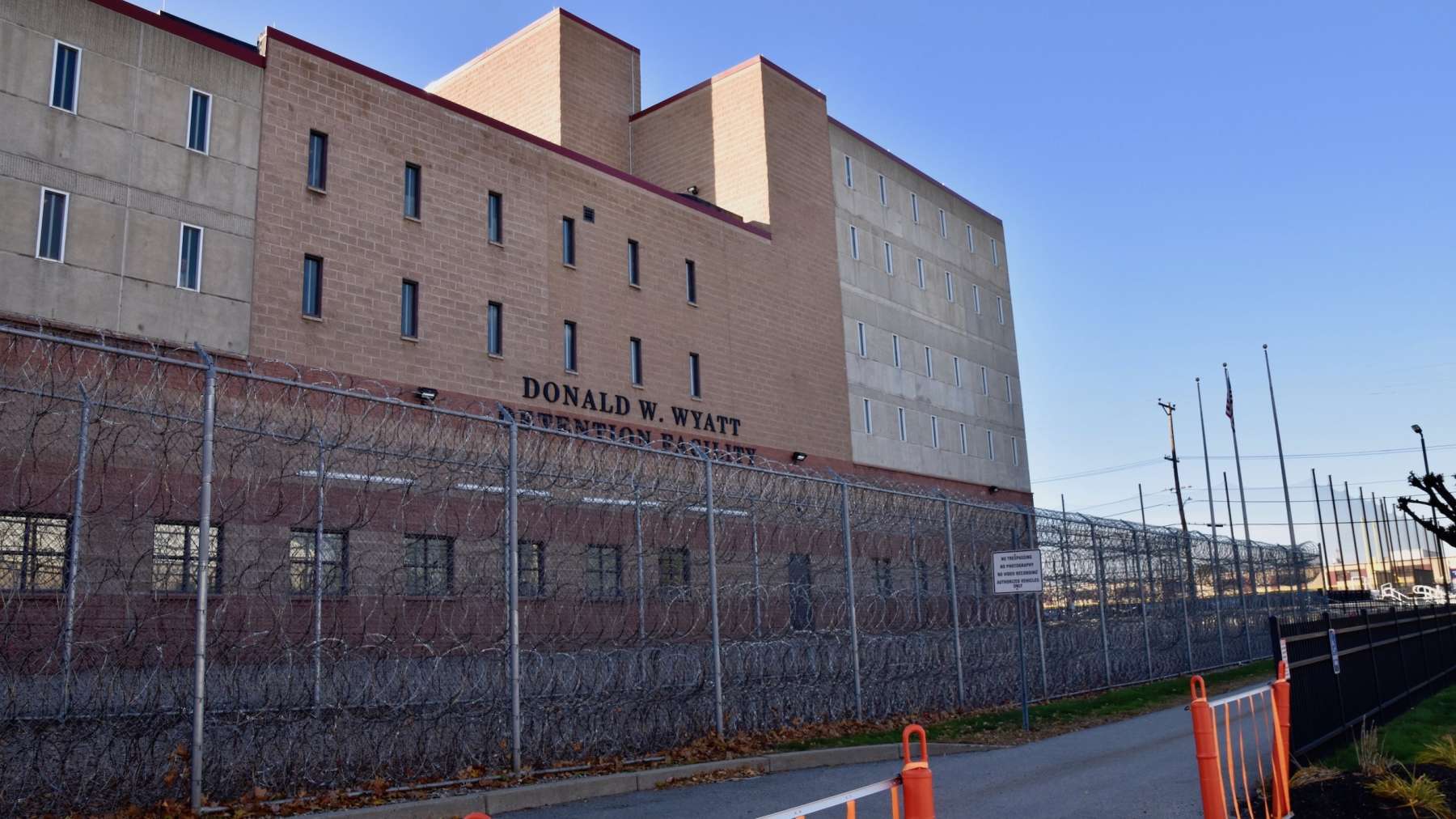Until May 19th, Wyatt prisoners with Opioid Use Disorder underwent forced withdrawal, a form of torture
“Upon incarceration, many opioid dependent prisoners are forced to undergo abrupt opioid withdrawal. As noted above, forced or abrupt opioid withdrawal can cause profound mental and physical pain, have serious medical consequences, and increase the risk of suicide among opioid dependent individuals with co-occurring disorders,” write R. Douglas Bruce, MD, MA and Rebecca A. Schleifer, JD, MPH in a paper.
May 24, 2022, 1:00 pm
By Steve Ahlquist
United States Attorney Zachary Cunha announced on Monday that his office has entered into an agreement with the Donald W. Wyatt Detention Facility (Wyatt) to ensure that detainees being treated for Opioid Use Disorder (OUD) prior to entering the facility will continue to receive that treatment while in Wyatt’s custody, as required by the Americans with Disabilities Act (ADA).
“Individuals who are receiving treatment for OUD are generally considered disabled under the ADA. Accordingly, among other things, the law requires that jails and prisons maintain medications that individuals have already been prescribed to treat OUD,” said the United States Attorney in a press release. “Based on an investigation, the United States Attorney’s Office’s determined that the Wyatt Facility was not in full compliance with its obligations under the ADA. The investigation determined that Wyatt failed to provide medications used to treat OUD, such as methadone and buprenorphine; and did not provide any individualized medical determination to assess whether each person should be maintained on or withdrawn from such treatment. As a result, individuals who had previously received treatment for OUD under the supervision of a licensed health care professional had to undergo forced withdrawal while incarcerated at Wyatt.”
In a paper, R. Douglas Bruce, MD, MA and Rebecca A. Schleifer, JD, MPH argue that withholding treatment for Opioid Use Disorder is torture, writing:
“International law unequivocally forbids the use of torture and other cruel, inhuman or degrading treatment or punishment (CAT, 1984; ICCPR, 1966; ECPHRFF, 1953). These prohibitions extend to conditions of confinement for prisoners, and apply “not only to acts that cause physical pain but also to acts that cause mental suffering to the victim” (UNHRC, 1992), including intimidation and other forms of threats (UNGA, 2001; UNGA, 1988).
“The Human Rights Committee, an expert United Nations body that monitors compliance with the ICCPR [International Covenant on Civil and Political Rights] and provides authoritative interpretations of its provisions, has explained that states have a “positive obligation towards persons who are particularly vulnerable because of their status as persons deprived of liberty,” stating further that “Persons deprived of their liberty enjoy all the rights set forth in the [ICCPR], subject to the restrictions that are unavoidable in a closed environment” (UNHRC, 1992).
“The Convention against Torture proscribes acts committed by public officials, as well as acts committed with their “acquiescence.” In other words, international human rights law bars the state from tolerating acts or perpetuating conditions that amount to torture or ill-treatment. In prison, where most material conditions of incarceration are directly attributable to the state and where inmates have been deprived of their liberty and means of self-protection, the requirement to protect individuals from risk of torture and other ill-treatment can give rise to a positive duty of care, which has been interpreted to include effective methods of prevention, screening, and treatment for life-threatening diseases (CPT, 2002; ECHR, 2006).
“The failure to provide access to MAT [medication assisted treatment] – an effective medical treatment for opioid dependence, as well as critical to preventing HIV – may result in violations of basic obligations to protect prisoners from exposure to inhuman or degrading treatment. Upon incarceration, many opioid dependent prisoners are forced to undergo abrupt opioid withdrawal. As noted above, forced or abrupt opioid withdrawal can cause profound mental and physical pain, have serious medical consequences, and increase the risk of suicide among opioid dependent individuals with co-occurring disorders.“
Critics of the Wyatt have long pointed out that the prison has historically been a place of torture, pointing to the case of Hiu Lui “Jason” Ng. In 2008, Ng, a migrant from Hong Kong, died in immense pain of liver cancer while detained at the facility due to medical neglect and cruelty. A legal claim filed on Ng’s behalf claimed that the guards would drag him by his arms and legs because they believed Ng was only pretending to be sick.
Under the terms of the agreement reached last week, the Wyatt will adopt non-discriminatory medication management policies at the facility and provide methadone or buprenorphine for individuals with OUD who have been prescribed such medication under the supervision of a licensed health care professional.
“Efforts to combat substance abuse and opioid deaths require every tool at our disposal,” said United States Attorney Cunha. “That means not just vigorous and targeted law enforcement, but also sensible and humane treatment that provides a bridge to recovery. Where medical professionals have determined that OUD treatment is appropriate, the ADA requires jails like the Wyatt to continue to provide it, and I am pleased that, with today’s agreement, the facility has committed to meet this critical obligation to its detainees.”
This matter was handled by Assistant U.S. Attorney Amy Romero. Those interested in finding out more about the ADA can call the department’s toll-free ADA Information Line at 800-514-0301 (TDD 800-514-0383) or visit here. ADA complaints may be filed online here. The department has issued guidance on the ADA and the Opioid Crisis, available here.
Anyone in the District of Rhode Island may also report civil rights violations directly to the U.S. Attorney’s Office for the District of Rhode Island here or 401-709-5000.






